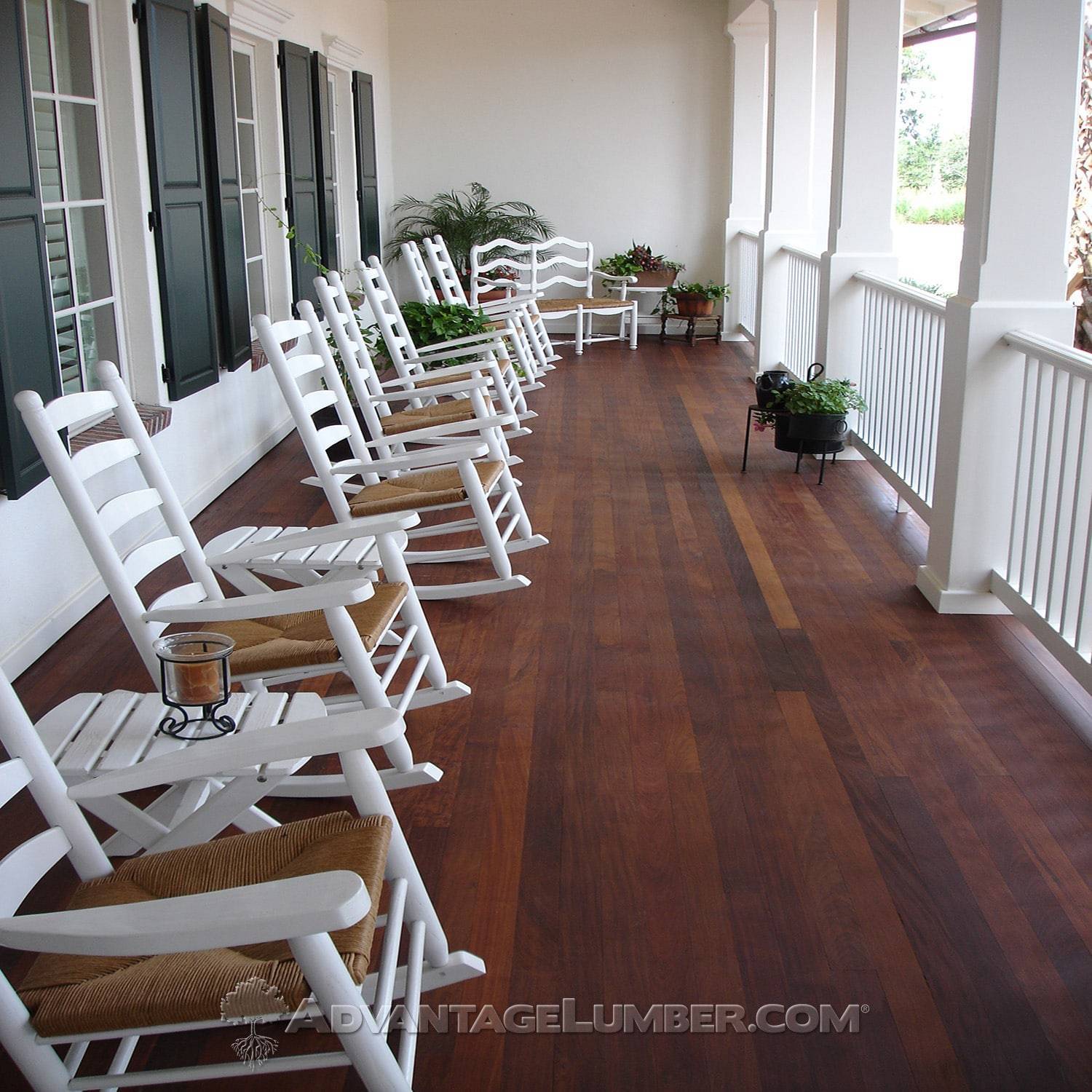When it comes to building a porch, choosing the right wood for your porch floor is crucial. The porch is often the first part of your home that visitors see, and it needs to withstand the elements while maintaining its beauty. With a plethora of options available, selecting the best wood can be overwhelming.
This blog post will guide you through some of the best wood choices for porch floors, highlighting their unique characteristics, durability, and aesthetic appeal. These 8 wood options excel in all climates and will long outlast softwood options like pressure treated pine and cedar.
1. Ipe Wood
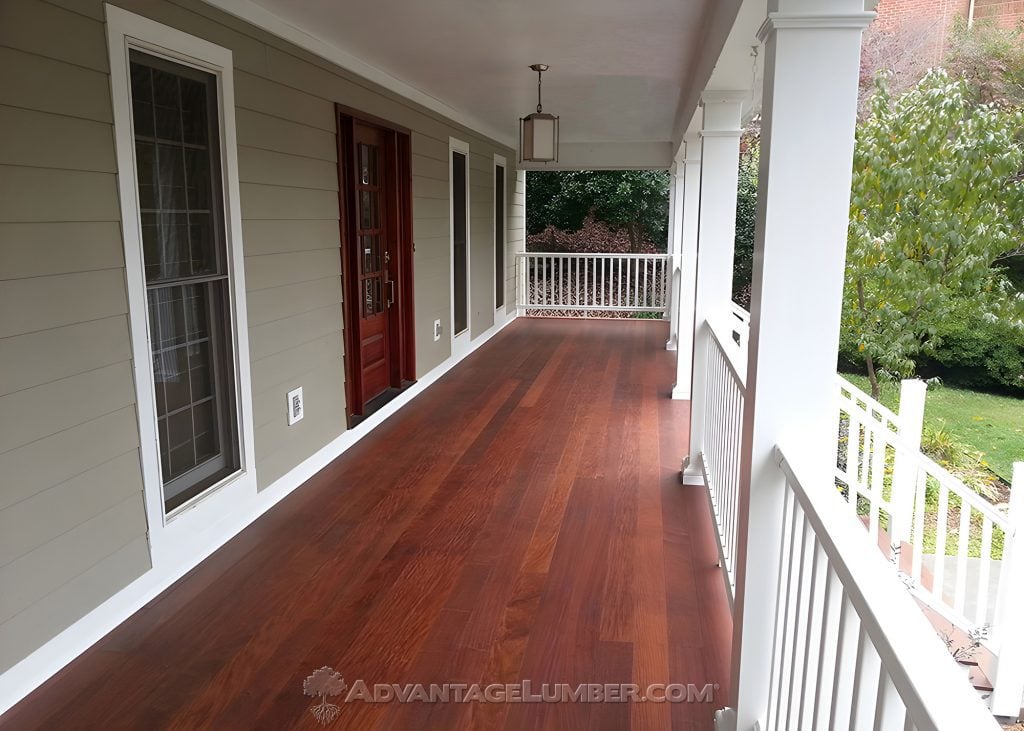
Ipe is renowned for its exceptional durability and natural resistance to rot, insects, and mold. This Brazilian hardwood is one of the densest woods available, making it an excellent choice for high-traffic areas like porches.
- Durability: Up to 75 years with proper maintenance.
- Appearance: Rich brown with a fine grain that can age to a silver-grey if left untreated.
- Maintenance: Minimal; regular cleaning and sealing to maintain color.
- Cost: Higher-end due to its quality and longevity.
2. Cumaru
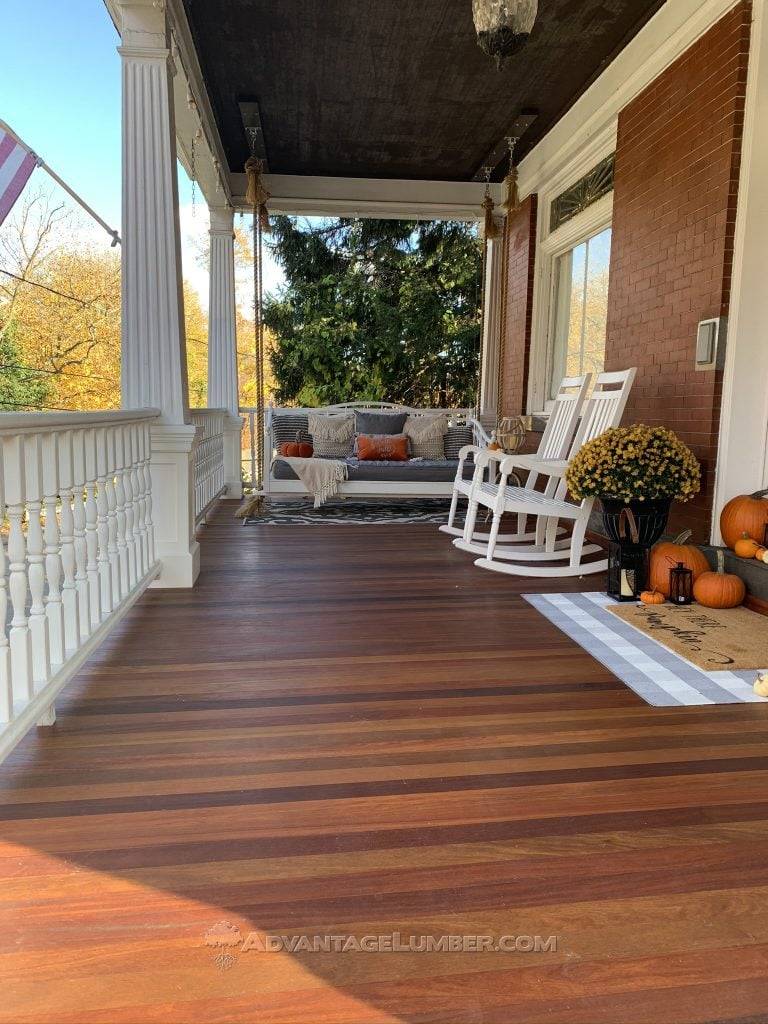
Often referred to as Brazilian Teak, Cumaru is another durable option for porch flooring. It’s similar in appearance to Ipe but often more affordable.
- Durability: Comparable to Ipe, offering long-lasting performance.
- Appearance: Warm golden-brown tones with an interlocking grain pattern.
- Maintenance: Requires occasional oiling to retain its color.
- Cost: More economical than Ipe, offering excellent value.
3. Tigerwood
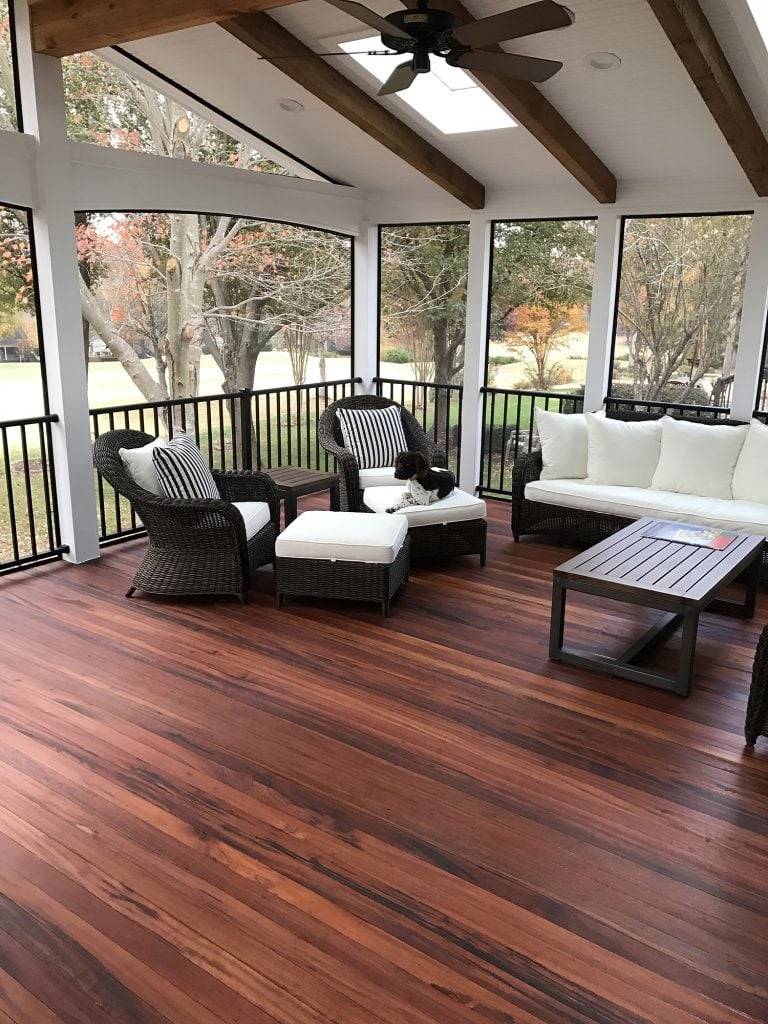
Tigerwood is known for its dramatic appearance, featuring bold streaks and a rich, reddish-brown color. It’s a great choice for those looking to make a statement with their porch.
- Durability: Resistant to decay and pests, with a lifespan of over 30 years.
- Appearance: Unique striping pattern that adds visual interest.
- Maintenance: Regular cleaning and oiling recommended.
- Cost: Mid-range, offering a balance of beauty and durability.
4. Garapa
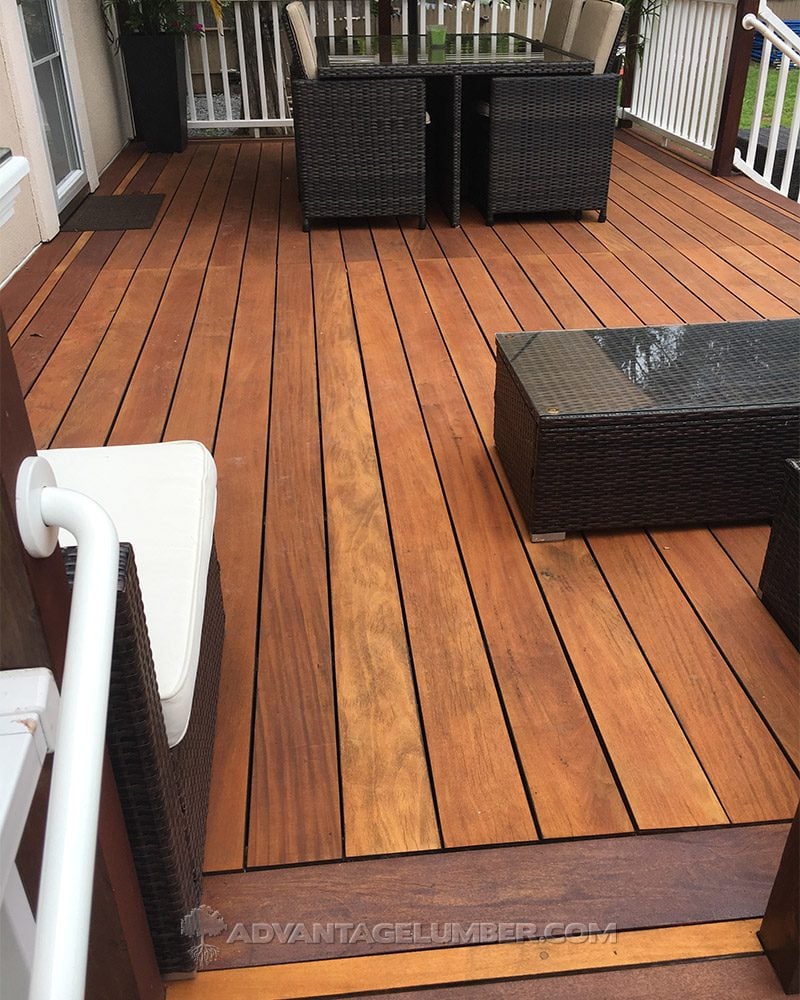
Also known as Brazilian Ash, Garapa is a lighter wood that offers a more subtle look while still providing durability.
- Durability: Naturally resistant to rot and insects, lasting several decades.
- Appearance: Light yellow to golden hues with a smooth texture.
- Maintenance: Easy to maintain with occasional oil application.
- Cost: Budget-friendly compared to other hardwoods.
5. Brazilian Redwood
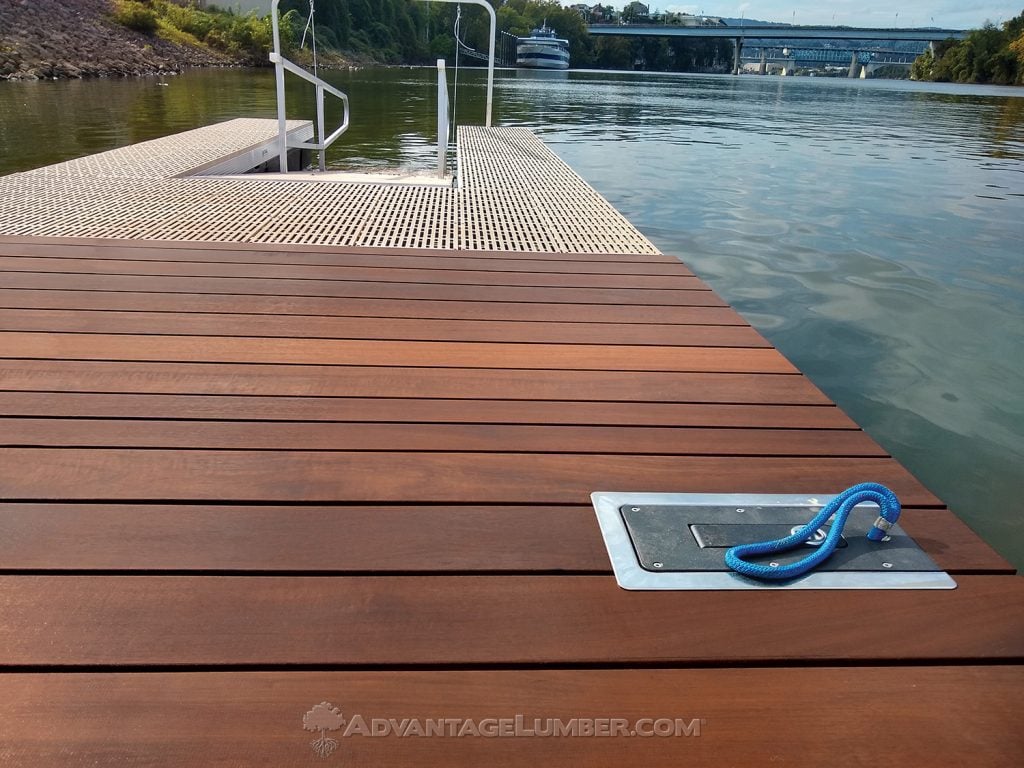
Brazilian Redwood (Massaranduba) is an extremely dense wood with a rich, reddish-brown color. It’s highly durable and resistant to weathering.
- Durability: Can last up to 40 years or more.
- Appearance: Deep red tones that age gracefully.
- Maintenance: Requires periodic oiling to maintain color and luster.
- Cost: Higher price point, but worth it for its longevity and beauty.
6. Mahogany
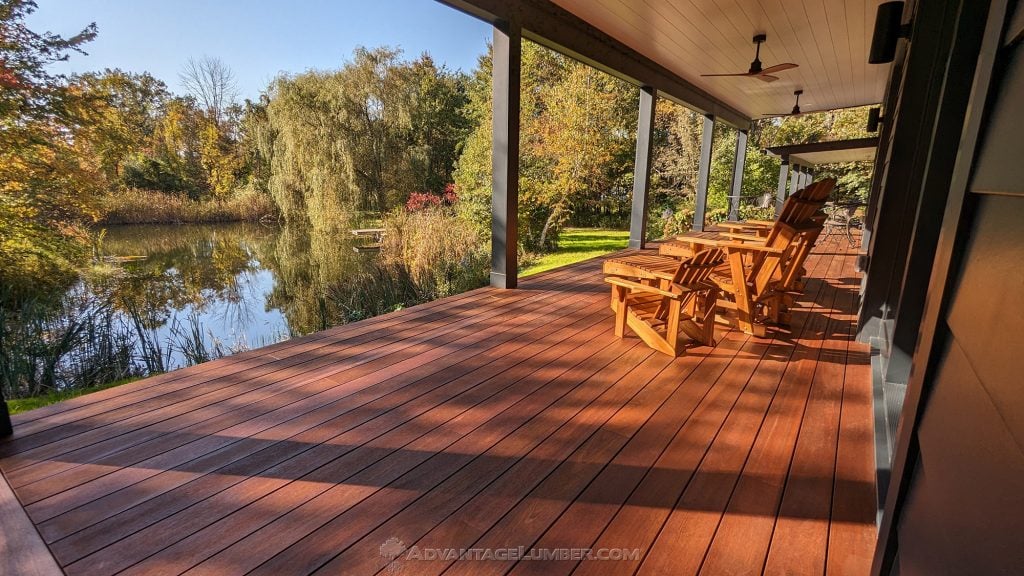
Mahogany is a classic choice for porch flooring, offering a timeless look and excellent weather resistance.
- Durability: Resistant to warping and decay, with a lifespan of 20-30 years.
- Appearance: Rich, warm tones with a straight grain.
- Maintenance: Regular oiling to maintain its rich color.
- Cost: Moderately priced, providing a good balance of cost and quality.
7. Teak
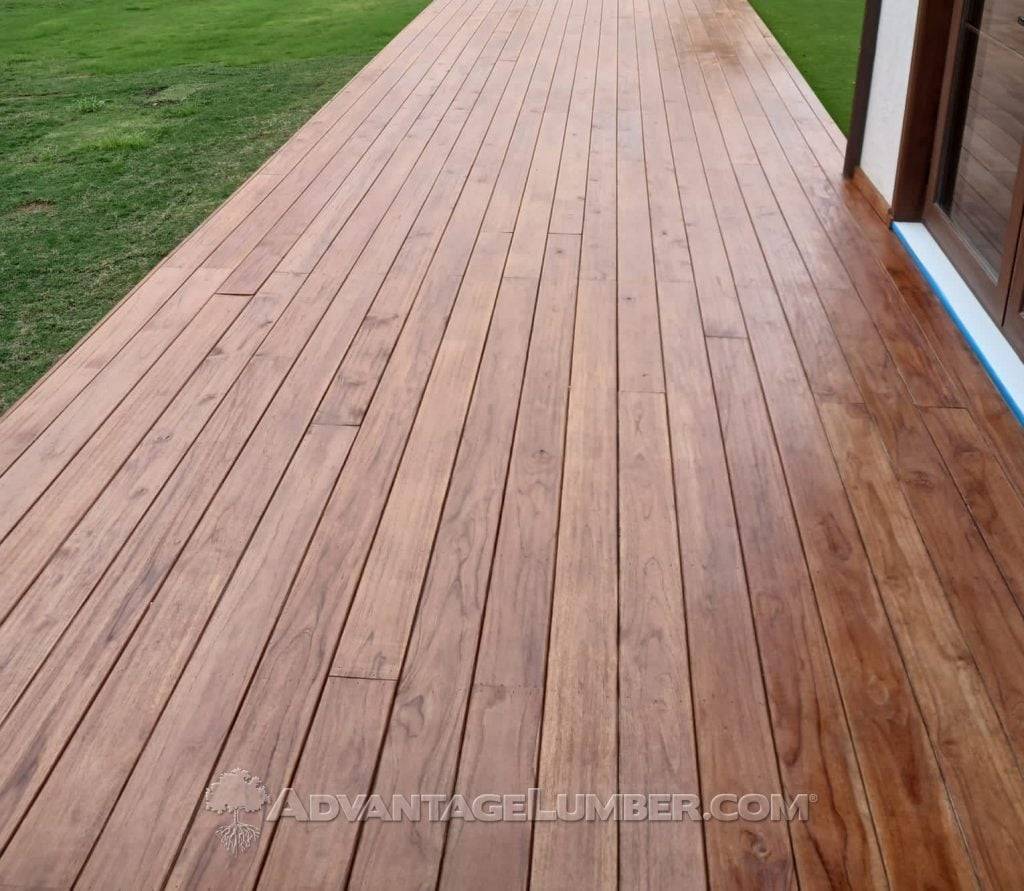
Teak is often synonymous with luxury outdoor furniture, and its qualities make it an excellent choice for porch flooring as well.
- Durability: Naturally resistant to moisture and pests, lasting up to 50 years.
- Appearance: Golden-brown color that weathers to a silver-grey.
- Maintenance: Regular oiling to maintain its rich color.
- Cost: High-end, reflecting its superior qualities and aesthetics.
8. Thermally Modified Ash and Pine
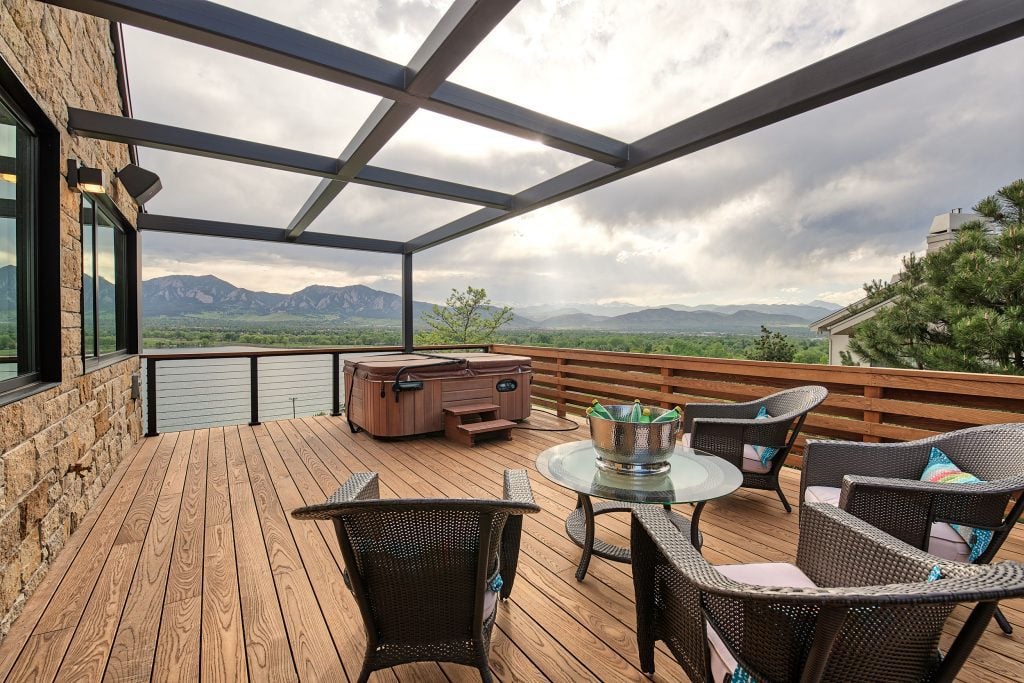
Thermally Modified Ash and Pine are treated woods that offer enhanced durability and resistance to decay, making them sustainable alternatives to tropical hardwoods.
- Durability: Enhanced through thermal modification, offering a lifespan of 25-30 years.
- Appearance: Rich, warm tones with improved stability and reduced moisture absorption.
- Maintenance: Low-maintenance; occasional cleaning and oiling.
- Cost: Generally more affordable, providing an eco-friendly option.
Choosing the Right Wood for Your Porch
When selecting the best wood for your porch floor, consider the following factors:
- Climate: All of these 8 wood options listed above excel in all climates from snowy cold regions to hot and humid Florida as well as hot and dry Arizona.
- Budget: While exotic hardwoods like Ipe and Teak are more expensive, they offer superior longevity and minimal maintenance.
- Aesthetic Preferences: Each wood type offers unique colors and grain patterns. Consider the overall look you want to achieve.
- Maintenance: Some woods require more upkeep to maintain their appearance. Consider how much time you’re willing to spend on maintenance.
Conclusion
Choosing the best wood for your porch floor is a significant decision that impacts your home’s aesthetic and functionality. Whether you prefer the luxurious feel of Teak or the sustainable appeal of thermally modified woods, there’s a perfect choice for every taste and budget. Consider the factors outlined above and select a wood that aligns with your specific needs and preferences. With the right choice, your porch will be a welcoming, durable, and beautiful space for years to come.
